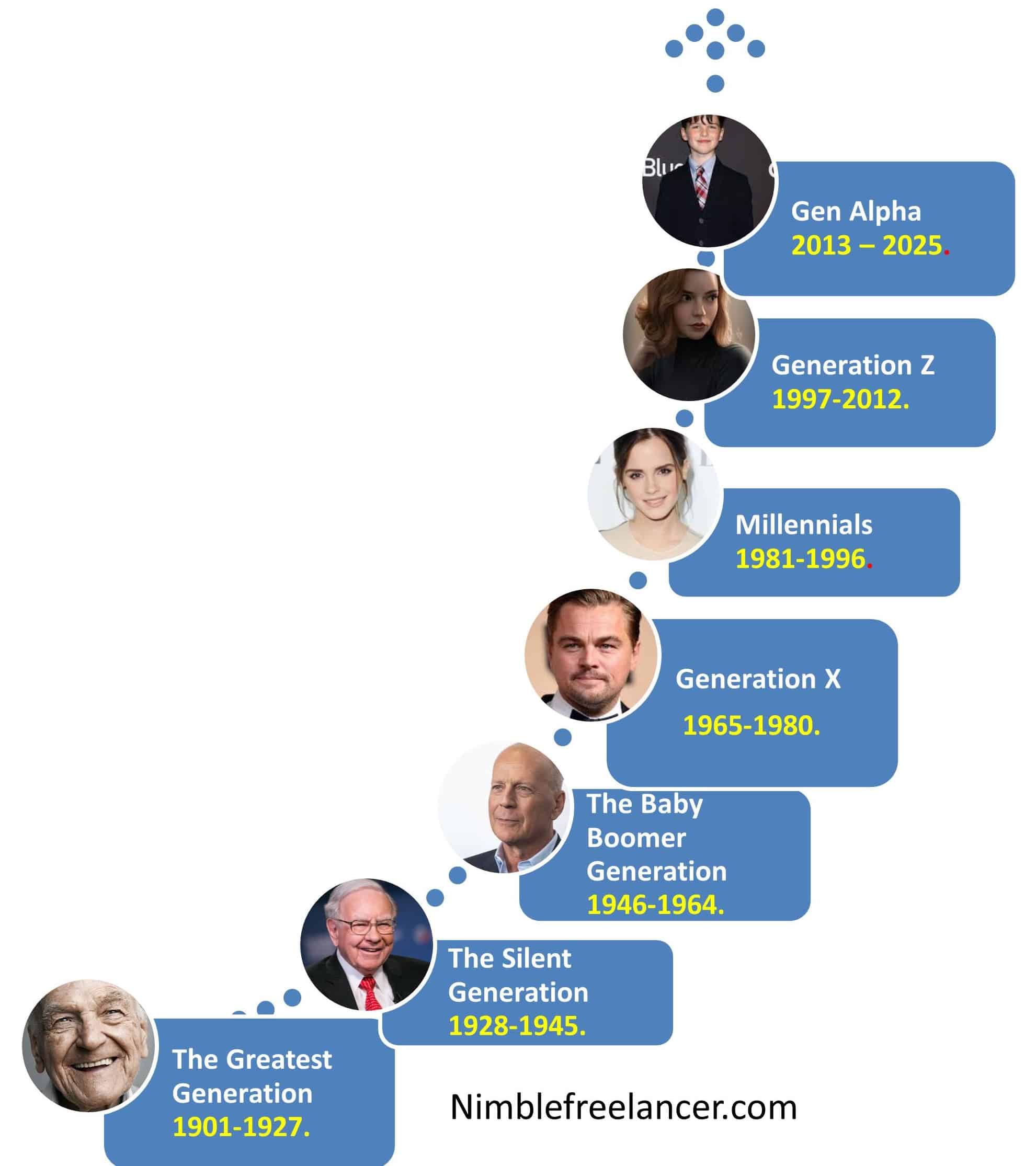The Greatest Generation, coined by author Tom Brokaw to describe those born between 1901 and 1927, is often recognized as the generation that helped shape American culture and history. This generation’s contributions laid the foundation for today’s modern world, from economic development to technological advancement to political shifts.
For this generation of Americans, it was a time of unbridled optimism and unprecedented prosperity. The economy boomed due to industrialization and new technological innovations such as automobiles, radios, and telephones. These advances drove economic growth in cities nationwide and gave birth to consumer culture, as people could purchase products on credit for the first time. It also ushered in a wave of immigration from Europe, which brought new ideas and cultural diversity.
For me, this generation is essential because they succeeded in surviving two World Wars and the Great Depression.
What Years are the Greatest Generation?
The Greatest Generation represents generations born between 1901 and 1927. However, we should take the year range roughly because the Greatest Generation is usually born between the beginning of the 1900s and the late 1920s.
Based on the most common classification, generation names are:
- The Greatest Generation – born 1901-1927.
- The Silent Generation – born 1928-1945.
- The Baby Boomer Generation – born 1946-1964.
- Generation X – born 1965-1980.
- Millennials – born 1981-1996.
- Generation Z – born 1997-2012.
- Gen Alpha – born 2013 – 2025.

- The Greatest Generation was the first generation to experience the modern world and the significant changes it brought – technologies such as automobiles, electricity, telephones, televisions, and computers were beginning to be introduced.
- They lived through two of the most significant wars in human history – World War I and World War II – and as a result, they developed a strong sense of patriotism and loyalty to their country.
- They were known for their hard work ethic and willingness to sacrifice for their families and communities.
- This generation experienced the Roaring Twenties when the economy was booming and the tough times during the Great Depression.
- This generation also experienced industrialization and mass production, which changed how goods were produced and people lived and worked daily.
- They embraced new technology, such as radio and motion pictures, significantly impacting entertainment and politics.
- Despite experiencing many complex challenges throughout their lifetime, this generation is remembered for its resilience in overcoming obstacles with hope, strength, courage, determination, and perseverance to make life better for future generations.
- During this time, women began to gain more rights while African Americans made small advancements in achieving civil rights despite rampant racism throughout America.
- Advances in telecommunication technology, such as telegraphs or early versions of video conferencing techniques called ‘radiovision,’ improved communication between people.
- Education became more important during this period, with increased literacy rates due to more books being published and advancements in primary education becoming available (a first-grade curriculum was introduced). 11 . The invention of plastic during this era brought about many conveniences, from packaging food products to creating medical supplies or children’s toys—some materials are still used today!
Politically, this generation was responsible for bringing about social reforms such as prohibition, women’s suffrage, and civil rights laws, which granted African Americans equal rights under the law. They also saw two World Wars, which changed the face of warfare forever with the introduction of air power, mechanized forces, atomic bombs, jet fighters, and other advanced weapons systems.
This generation was not without its flaws, however; racial tensions were high due to segregation laws which prohibited African Americans from enjoying full citizenship rights, while Jim Crow laws shored up existing barriers between whites and blacks; women were still largely excluded from positions of power despite their increased visibility in society; labor unions were weak in comparison to their predecessors before World War I; financial speculation led to stock market crashes leading up to the Great Depression; many parts of rural America remained impoverished due to poor infrastructure investments; protectionism increased tariffs leading up to global trade stagnation.
Despite these setbacks, The Greatest Generation stands out as one that achieved outstanding accomplishments at home and abroad. Through hard work and dedication, they established a solid economic foundation for future generations while providing invaluable social progress that is still seen today through civil rights advancements. The courage and resilience displayed by this group during difficult times will continue to be admired for years.
- Facebook Ads to Get Followers! - December 27, 2024
- ClickUp vs. Slack - December 20, 2024
- Mastering E-Commerce Analytics: A Blueprint for Success





